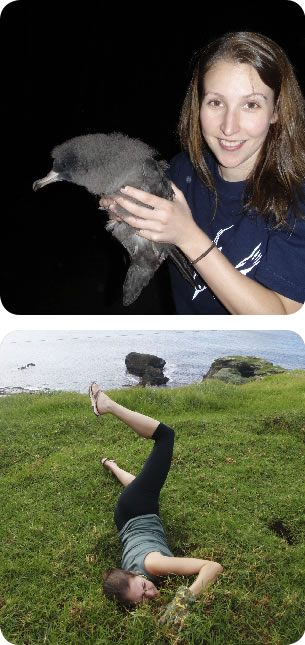
Jennifer Lavers
CSIRO, Wildlife Ecologist
Impacts of marine debris on Australian seabirds
Jennifer has been working on seabird ecology for more than 10 years. As a PhD student she spent four years on a remote set of islands in the Canadian sub-Arctic studying the impacts of ocean warming and harvesting on seabird populations. She then moved to Hawaii to study tropical seabirds before arriving in Australia. In 2010 she completed a Postdoctoral Fellowship with the University of Tasmania and CSIRO developing tools to minimize the bycatch of seabirds and sea turtles in long-line fisheries. More recently, she has developed a passion for mitigating the effects of marine debris.
Marine debris has received extensive media coverage in North America (primarily in relation to the North Pacific 'Garbage Patch'). In Australia, marine debris is a serious and rapidly increasing issue, recently identified by the federal government as a Key Threatening Process for wildlife. To address this, Jennifer has been examining what role marine debris ingestion plays in the decline of Flesh-footed Shearwaters on Lord Howe Island, NSW. She discovered this species is heavily contaminated with mercury, arsenic, and other heavy metals. Such toxins are often used to add colour to plastics which then leech into the bird's blood stream once ingested. Jennifer's research and volunteer work has been exceptionally rewarding from both a conservation and travel standpoint.
"Developed countries alone spend $17 billion annually on pet food and $34 billion each year on slimming products. It is thus clear to us that the developed world could fund effective conservation if it chose to"
(Balmford & Whitten 2003)
Find out more about marine debris at: www.jenniferlavers.org , or https://5gyres.org/
